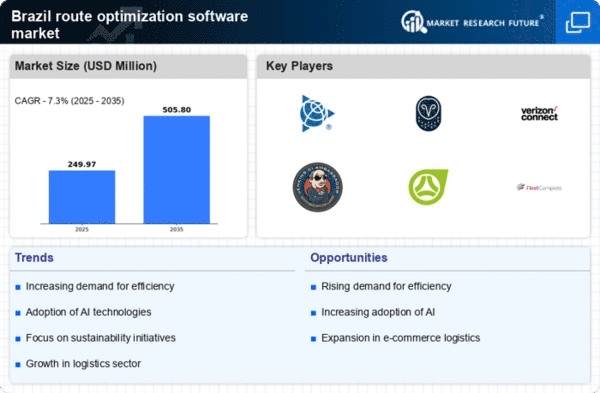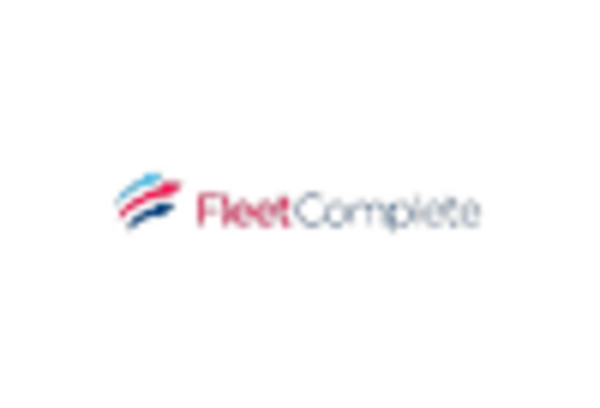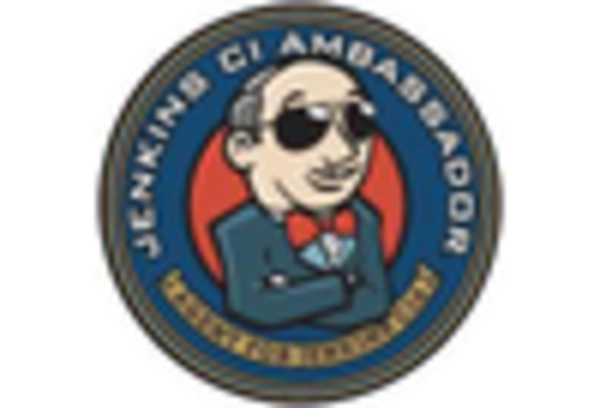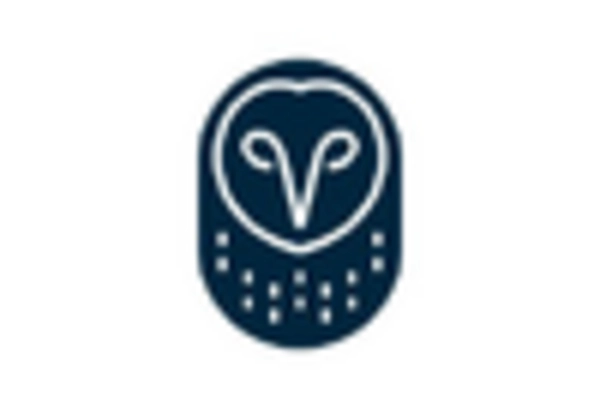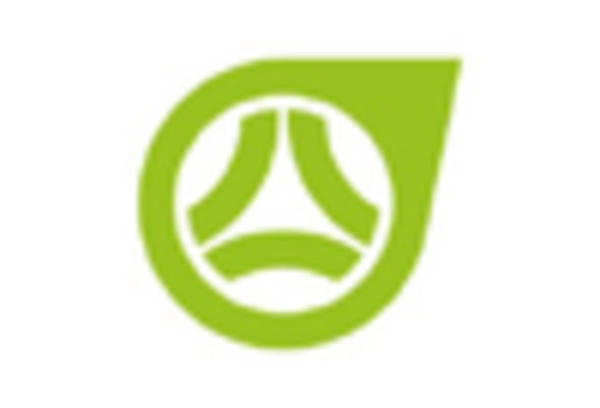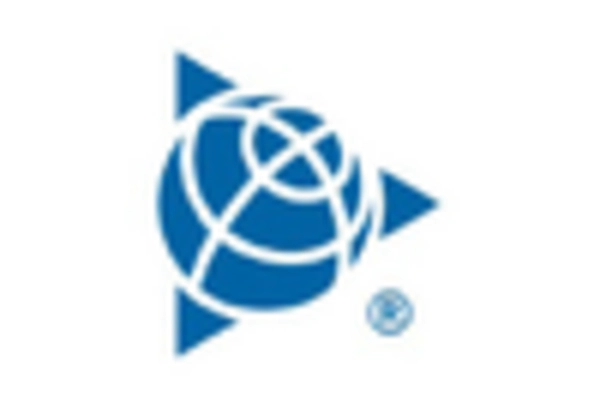Increased Focus on Cost Reduction Strategies
In the competitive landscape of Brazilian logistics, companies are increasingly focusing on cost reduction strategies, which is propelling the route optimization-software market. Businesses are under pressure to minimize operational costs while maintaining service quality, leading to a heightened interest in software solutions that can optimize routing and scheduling. Studies suggest that effective route optimization can lead to a reduction in transportation costs by as much as 25%. As companies seek to enhance their profitability, the adoption of route optimization software is likely to become a critical component of their operational strategies. This focus on cost efficiency is expected to drive significant growth in the route optimization-software market.
Rising Demand for Efficient Logistics Solutions
The logistics sector in Brazil is experiencing a notable surge in demand for efficient solutions, which is driving the route optimization-software market. As businesses strive to enhance their operational efficiency, the need for software that can streamline delivery routes and reduce transportation costs becomes paramount. In 2025, the logistics industry in Brazil is projected to grow by approximately 8%, indicating a robust market for route optimization solutions. Companies are increasingly recognizing that optimizing routes can lead to significant savings, potentially reducing fuel costs by up to 20%. This trend suggests that the route optimization-software market will continue to expand as logistics providers seek to meet the evolving demands of their customers.
Growth of E-commerce and Last-Mile Delivery Services
The rapid growth of e-commerce in Brazil is reshaping the logistics landscape, thereby influencing the route optimization-software market. As online shopping continues to gain traction, the demand for efficient last-mile delivery solutions is escalating. In 2025, e-commerce sales in Brazil are expected to reach approximately $30 billion, necessitating the need for software that can optimize delivery routes to ensure timely and cost-effective service. Companies are increasingly investing in route optimization technologies to enhance their last-mile delivery capabilities, which could lead to a 15% reduction in delivery times. This trend indicates a strong potential for growth in the route optimization-software market as businesses adapt to the changing consumer landscape.
Government Initiatives Supporting Digital Transformation
Brazilian government initiatives aimed at promoting digital transformation are significantly impacting the route optimization-software market. Policies encouraging the adoption of technology in transportation and logistics are fostering an environment conducive to innovation. For instance, the Brazilian Ministry of Infrastructure has launched programs to enhance the efficiency of freight transport, which includes the integration of advanced software solutions. This governmental support is likely to increase the adoption of route optimization software among logistics companies, as they seek to comply with new regulations and improve their service offerings. The route optimization-software market stands to benefit from these initiatives, as they create a favorable landscape for technological advancements.
Emergence of Advanced Analytics and Data-Driven Decision Making
The emergence of advanced analytics and data-driven decision-making is transforming the route optimization-software market in Brazil. Companies are increasingly leveraging data analytics to gain insights into their logistics operations, enabling them to make informed decisions regarding route planning and resource allocation. The integration of big data and machine learning technologies into route optimization software is enhancing its capabilities, allowing for real-time adjustments based on traffic patterns and delivery schedules. This trend is likely to lead to improved operational efficiency and customer satisfaction, as businesses can respond more effectively to dynamic market conditions. The route optimization-software market is poised for growth as organizations embrace these advanced analytical tools.


